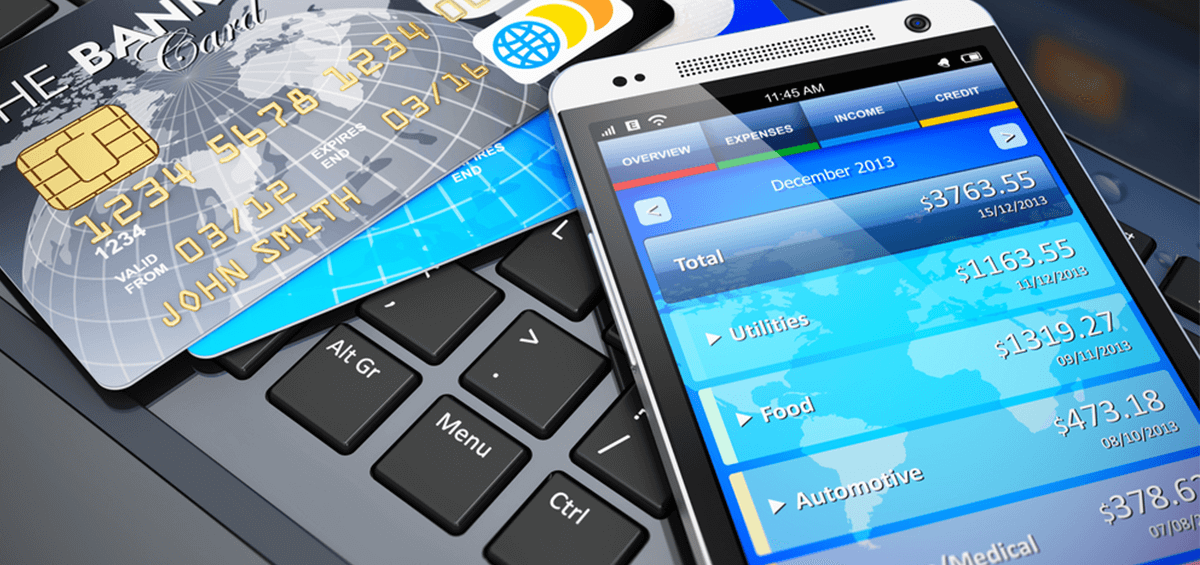It may seem that there’s an app or software program for every purpose, and that includes managing your money. Here are some examples where technology may be useful in helping you get a handle on your money.
Creating a budget: There are multiple apps available that enable you to input your monthly income and expenses to generate a budget that fits your needs. Plus, some programs are able to categorize and track transactions, which could help you see exactly how much you spend in certain areas on a month-to-month basis.
Setting reminders: Do you occasionally forget to pay a particular bill? Or are you looking for a regular reminder to keep an eye on your account balances? Look for an app that lets you schedule reminders that suit your needs, whether it’s an alarm that goes off for monthly bills or a service that automates payments you might otherwise forget to make.
Digitizing services: You’re probably aware of your bank’s direct deposit services, but did you know that you can send payments, request refunds, and view transaction history using your bank’s mobile app? You can also find apps that feature calculators designed to help you make investment decisions, as well as determine your net worth, calculate the time value of your money, and estimate your insurance needs, among other things.
Shopping (and saving): Some apps are designed specifically to help you save money in a variety of ways, from searching for the best local deals to calculating the cost of driving from point A to point B. If you’d like to dial back your spending, look for an app that can help you cut costs. For example, apps can compare the cost of groceries at one store against another, or help you find the lowest gas prices in your area. That way, you can put the extra money you have from being a savvy shopper toward a long-term goal, such as retirement.
With some exploration, you may find additional money-related apps. But bear in mind that even though many apps and services promise security, technology isn’t always reliable, and you could fall victim to hackers. Think carefully before you provide information pertaining to your bank account and income/spending history.
Copyright 2006- Broadridge Investor Communication Solutions, Inc. All rights reserved.
Broadridge Investor Communication Solutions, Inc. does not provide investment, tax, or legal advice. The information presented here is not specific to any individual’s personal circumstances.
To the extent that this material concerns tax matters, it is not intended or written to be used, and cannot be used, by a taxpayer for the purpose of avoiding penalties that may be imposed by law. Each taxpayer should seek independent advice from a tax professional based on his or her individual circumstances.
These materials are provided for general information and educational purposes based upon publicly available information from sources believed to be reliable—we cannot assure the accuracy or completeness of these materials. The information in these materials may change at any time and without notice.
*Non-deposit investment products and services are offered through CUSO Financial Services, L.P. (“CFS”), a registered broker-dealer (Member FINRA / SIPC) and SEC Registered Investment Advisor. Products offered through CFS: are not NCUA/NCUSIF or otherwise federally insured, are not guarantees or obligations of the credit union, and may involve investment risk including possible loss of principal. Investment Representatives are registered through CFS. Coastal Federal Credit Union has contracted with CFS to make non-deposit investment products and services available to credit union members.
CFS representatives do not provide tax or legal guidance. For such guidance please consult with a qualified professional. Information shown is for general illustration purposes and does not predict or depict the performance of any investment or strategy. Past performance does not guarantee future results.
Trust Services are available through MEMBERS Trust Company. CFS* is not affiliated with Members Trust Company.






